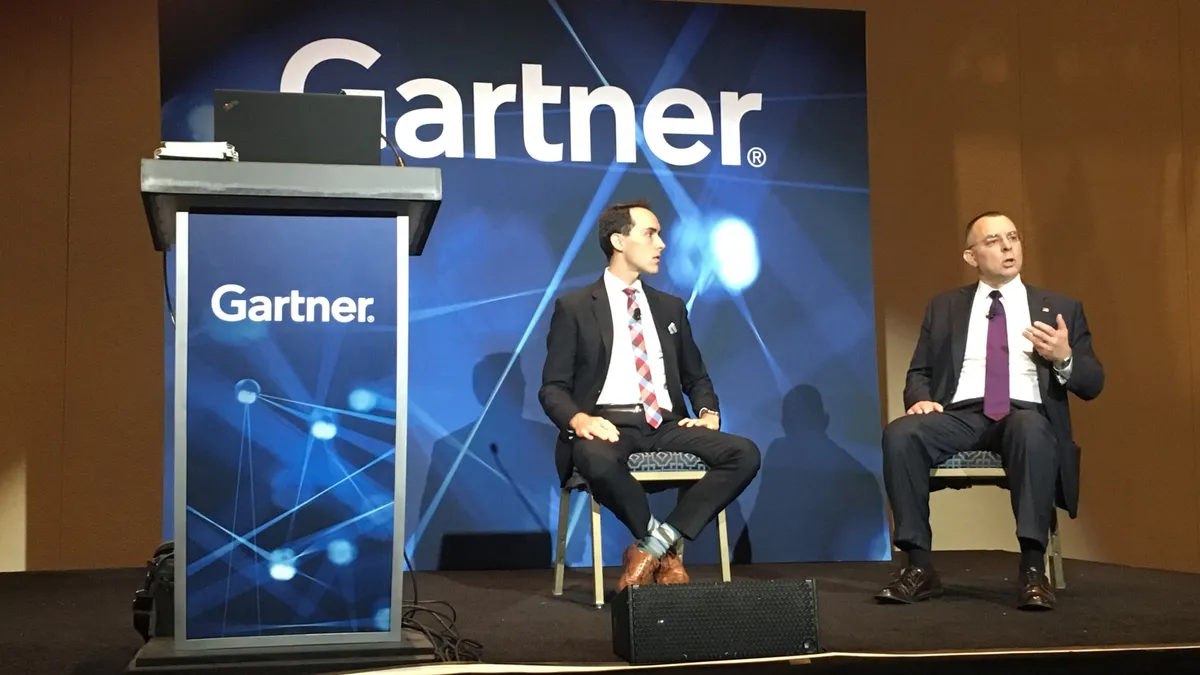Dive Brief:
- Only 30% of employees have the skills they need to perform their work today, analysts at Gartner told attendees at the company's recent Gartner ReimagineHR conference, and only 20% of employees have the skills needed for both current and future jobs.
- At the same time over two-thirds of businesses believe they will no longer be competitive if they don't become "significantly digitized" by 2020, Gartner said. About the same number of managers (64%) say they don't think their own employees will be able to keep pace with skills needed in the future, according to Gartner research.
- HR and L&D teams will have the responsibility of building "connected learners," Gartner said. The firm said its research showed this type of focus increases skill development by 28% to 39% across three areas of skill development. Connected learners are also eight times more likely to be high performers, Gartner said.
Dive Insight:
Digital transformations are changing the way employees work, and HR has the task of moving itself through digital change while doing the same for its worker populations. Experts have been quick to recommend a "future-proof" strategic approach in learning that includes training for areas of anticipated need. For some business, that means shifting the workday so workers can focus on training for the implementation of emerging technologies and/or new digital protocols.
Labor market analysts predict an upheaval in employment as automation changes not only how people work, but also how employers prepare for future skills gaps. Despite low current levels of unemployment, employers in markets that are especially vulnerable to automation should be mindful that disruption isn't just predicted — it's happening now. Those testing technologies like artificial intelligence and robotics must also be prepared to redefine job roles.
Keeping pace with change will also require learning and reskilling partnerships, something that has already caught on among big industry players. Google has stated will give away free scholarships to train U.S. workers and students regardless of whether they end up working for Google. But the basic challenge for most is to develop and/or partner with learning programs that deliver a quality experience that engages workers.












